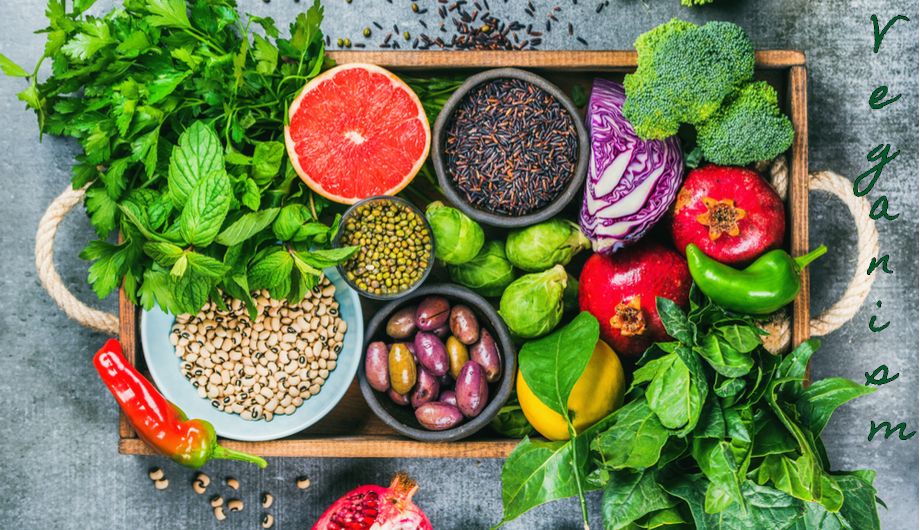- Get link
- X
- Other Apps
A plant-based diet is used as a diet or lifestyle that avoids animal products in food, cosmetics and clothing. A whole food diet - based or herbal - has become popular in recent years due to its health benefits and low cost.
Some people follow a more flexible plant-based diet that includes a little meat and dairy, although technically it is not a plant-based diet. Many vegans do not follow the strict vegan diet, which is no stricter than a vegan diet, but some do. You can also eat a vegetable diet and still eat some animal products such as meat, dairy products and eggs. In general, most vegetable dieticians do not identify as vegan, and a vegetable diet does not mean they do not use animal products.
Remember that vegetable diets means eating fewer animal products, but do not exclude them completely. Although healthy animal foods can be included in a WFPB diet, intake of these products minimizes the health benefits of a vegan diet and the risk of heart disease, diabetes, cancer and other health problems, as well as the adverse health effects of an animal product - free, plant-based or vegetarian. Some people, however, do not even eat meat, dairy products, eggs, poultry, fish, nuts, seeds, vegetables, fruit and nuts on a vegetarian, vegan or plant basis!
Simply put, a plant-based diet is one that focuses on whole, minimally processed plants. It is based on plant foods, including a few animal products, and does not contain meat, dairy products, eggs, poultry, fish, nuts, seeds, vegetables, fruits and nuts. The dietary habits most similar to other vegetarian diets, which may include vegetarianism, veganism and other non-animal diets - both product and free - are the same as those of a whole food-plant diet (WFPB).
Although vegetable diets have no particular taste, meat, fish, dairy products and egg products are still on the table for consumption.
Most people who call themselves plant-based also avoid eating plant fragments and focus on eating minimally processed versions of fruits, vegetables, nuts, seeds and other fruits and vegetables. Other plant-based diets include meat and fish, but their diet focuses on eating vegetables and fruit, not meat, fish and dairy products. For some, a pescatarian diet is similar to a vegetarian diet, but with the addition of fish. Others occasionally consume meat or fish or dairy products, and for others it means eating plants and occasionally enjoying meat / fish / eggs / dairy products, or being vegetarian or vegan.
The bottom line is that one person's vegetable diet excludes all animal products and processed foods, while another person may make a little room for some things. A person's "vegetable" diet does not necessarily exclude all animal products or processed foods, although that person may give these things a little "space," but it excludes them all.
A plant-based diet is the only one proven to prevent or reverse heart disease, and no other diet can claim this. There is no evidence of the effectiveness of plant-based diets in preventing or reversing heart disease, but it is the best available evidence of their effectiveness.
Although this is a broad definition, a plant-based diet is not a diet built on filling your plate with meat, dairy, eggs, poultry, fish, meat products and dairy products. It also includes animal products, which can be a source of protein, fiber, vitamins, minerals or other vital nutrients such as nuts, seeds, fruits, vegetables, nuts and seeds. The high vitamin and mineral content in plant foods, as well as the low fat and cholesterol content, make them a good choice for people with heart disease and diabetes.
If you switch to a plant-based diet, you don't have to think of processed foods. Buying food in its entirety or preparing it from scratch is what you want, vegetarian, and that is good for omnivores, but not ideal for vegetarians.
When you eat a plant-based diet, focus on whole foods, including fruits, vegetables, whole grains, legumes, nuts, seeds and whole grains. To get the most out of your plant-based diet, you can choose from a variety of different types of foods such as beans, lentils, chickpeas, peas, tomatoes, peppers, carrots, beans and more.
If you have difficulty eating a plant-based diet, have a look at our guide to a healthy, balanced, healthy and healthy diet with an emphasis on healthy fats and proteins.
Here is a separate source I have written about the WFPB diet, and here is a link to a list of recipes that contain dairy products. Simply put, a plant-based diet contains a large amount of fruit, vegetables, nuts, seeds, grains, legumes and whole grains. This article is for those who are interested in a plant based diet or vegetarian or vegan. A plant-based diet must be a source of food based on healthy fats, proteins, carbohydrates, vitamins, minerals and other healthy foods. It is the combination of food sources based on bees, such as fruit and vegetables, as well as nuts and seeds.
- Get link
- X
- Other Apps

Comments
Post a Comment